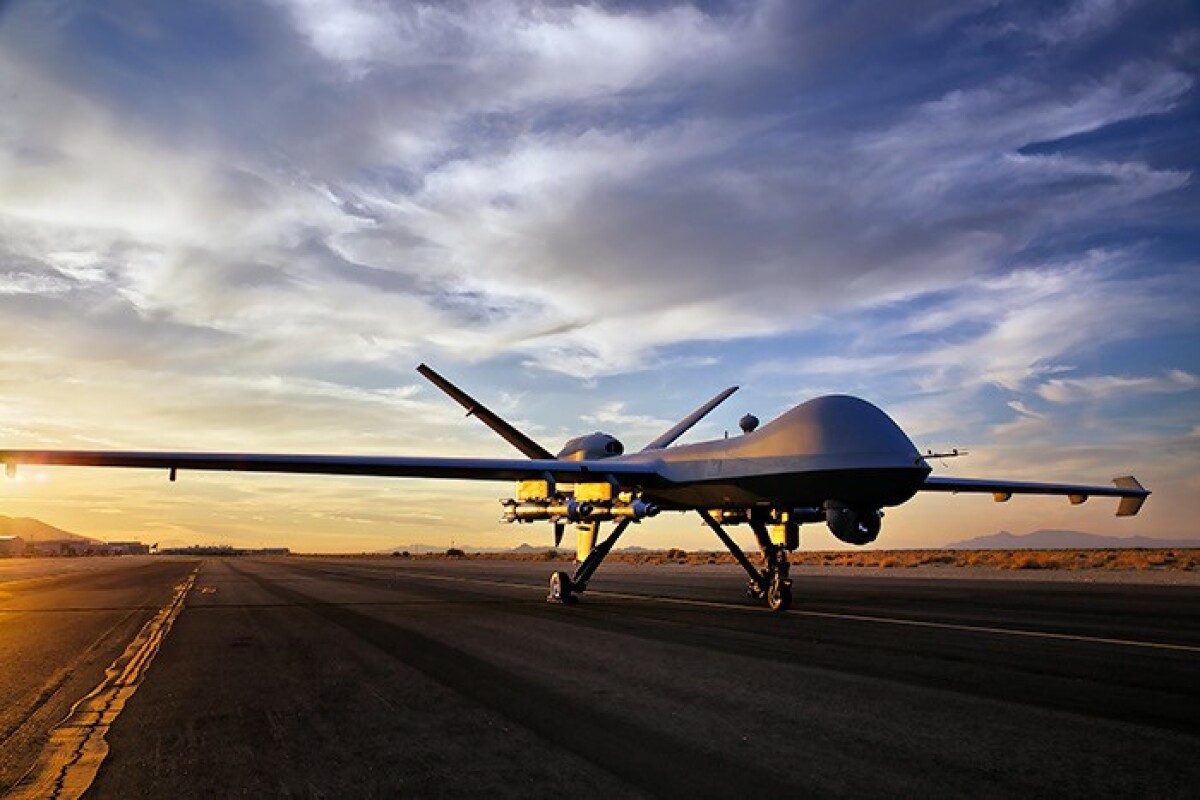The US Air Force (USAF) is keen to send its older Reaper drones to Ukraine. However, the Pentagon has not been forthcoming, which has left the Ukrainian leadership frustrated, according to a recent report by Politico, citing unnamed officials from both nations.
Germany Could Supply Leopard-2 Tanks To Ukraine; US Abrams, Korean Black Panthers Add To Russia’s Trouble
Ukraine War: A Whopping $22B US Military Aid To Kyiv To Fight Russia Could Bring Disaster For The World
The USAF has been trying to phase out the older version of its Reaper drones for years to free up its budget for acquiring more capable unmanned aerial capabilities that have now become available to the service.
However, the US Congress has been declining the service’s repeated requests.
A month after Russia invaded Ukraine in February, the service proposed to provide its older Reaper drones to Ukrainian forces. However, there have been concerns that the sensitive technology of these drones could fall into the hands of Russians, considering some drones would almost certainly be shot down.
For example, the Turkish-made Bayraktar drones, which were instrumental in destroying Russian armored columns and troops marching toward the capital Kyiv in the initial months of the war, became less effective from June onward, when the war shifted to the eastern Donbas region that was well protected by Russian air defenses.
These concerns have reportedly caused a months-long stalemate between the Pentagon and the US Air Force, according to four unnamed officials familiar with the matter cited by Politico.

Ukrainians Frustrated
The MQ-9 Reaper and the MQ-1C Gray Eagle used by the US Army have been on Ukraine’s top priority requests. Both these drones offer long-range surveillance and strike capability, essential for Ukrainian forces, as they press on the well-defended Russian frontlines in Donbas and the left (eastern) bank of the Dnipro River in Kherson.
The Ukrainians, who have been requesting long-range weaponry from Washington for months, are reportedly frustrated by Pentagon’s indecision even after having pledged to use the donated drones to attack only Russian positions inside Ukraine and promising to share targeting information with the US before launching strikes.
However, the concerns are mainly about the sensitive technology inside these drones getting stolen and not as much about escalation because other controversial systems like HIMARS Multiple Launch Rocket System (MLRS) have been approved after Ukraine pledged to use them only against targets within its borders.
Nevertheless, the drones are not off the table, as the Pentagon and the manufacturer of these two drones, General Atomics, are trying to make one or both drones transferable to Ukraine.
General Atomics executives have been in touch with Ukrainian officials for months, attempting to agree on technology transfers that would comply with US rules and concerns.
https://www.youtube.com/watch?v=eTrNgptqr10&t=20s
US Considering Supplying Gray Eagle Drones
As EurAsian Times reported in November, the US is considering supplying Ukraine with a downgraded version of its cutting-edge Gray Eagle MQ-1Cs to keep the American tech secrets from falling into Russian hands.
The US Army is reportedly leading the efforts to explore what modifications can be made to the Gray Eagle drones so that even if some of them are lost, there is less risk of disclosing sensitive technology, thereby possibly increasing the chances of Ukraine receiving them.
While it is unclear yet what technology onboard the Gray Eagle is the most sensitive, experts suggest the technology in question is most probably related to the imaging and intelligence-gathering capabilities and sensors.
The Pentagon is concerned about a Raytheon Technologies-made electro-optical/infrared ball on the Gray Eagle drone, known as the Multi-Spectral Targeting System (MSTS).
This electro-optical/infrared ball provides its operators with real-time intelligence, targeting, and tracking.
US Legislators Urging The Biden Administration To Provide Ukraine With Drones
Meanwhile, American lawmakers are also trying to pressure the US administration to provide Ukraine with Reaper and Gray Eagle drones.
Republican Congressman Kenneth Stanton Calvert from California, who is also a ranking member of the House Appropriations defense subcommittee, and whose district is near General Atomics headquarters, said that the USAF had initially signed off on sending MQ-9s to Ukraine. However, the leadership has not “bought into” the idea.
“We ought to be able to put in the MQ-9 Reaper and Gray Eagles that would help change the course of this war,” Calvert said in an interview.
Calvert is also urging to start training the Ukrainian forces to operate the Reapers and Gray Eagles ahead of the Biden administration’s decision because if the decision to send the drones is made, it could take three to four months to train new users.
Apart from that, a bipartisan group of 16 senators, led by Joni Ernst, a Republican from Iowa, and Joe Manchin, a Democrat from West Virginia, urged the US Defense Secretary Lloyd Austin in a letter dated November 22 to answer a series of questions on transferring the Gray Eagle since the drone is Ukraine’s “highest priority” military transfer request.
Joni publicly argued with the US Army secretary Christine Wormuth who expressed concerns about the survivability of Grey Eagles in a contested air environment at the Reagan National Defense Forum held last week in California.
On the same panel, Joni dismissed those concerns and showed little apprehension over the transfer of sensitive technology.
“If they’re using an S-300 to shoot down a Gray Eagle, that allows us to target that S-300. We can outfit a Gray Eagle with technology already being used in 30 other countries,” Joni said.
The senator from Iowa connected the drone issue to the Biden administration’s refusal to provide Ukraine with long-rage weapons that could strike deep inside Russia.
“We should be pounding the bloody hell of the Russians, through the Ukrainians, so that they can’t pop their heads up and come back in five to 10 years,” Joni said.
- Contact the author at tanmaykadam700(at)gmail.com
- Follow EurAsian Times on Google News